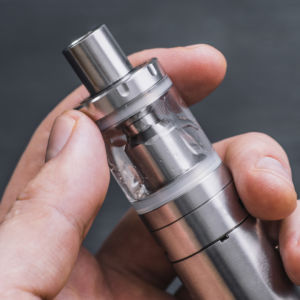For several years, respected voices in the public health community have warned of a breakdown in trust in their profession if the dishonest, damaging and often vicious campaign against safer alternatives to smoking by some of their colleagues continues to misinform the public.
Prominent among those warning that public health’s credibility will suffer has been Dr. Michael Siegel, a visiting professor and a researcher in the Department of Public Health and Community Medicine at the Tufts University School of Medicine. For more than 15 years, he has been lamenting the tobacco control industry’s increasing departure from the truth.
Siegel explained his concerns in an article from March 2019: “I believe that our movement has largely abandoned truth as a central value in our campaigns against vaping.” He continued, “Driven by an almost puritanical inability to accept the fact that a person could obtain pleasure from nicotine without it killing them, we have made the demonization of vaping the solitary goal of the movement, at the direct expense of what I always believed was our primary goal: to make smoking history.”
In the United Kingdom, a recent government-ordered review suggested that patience for peddling misinformation campaigns against vaping has run out, with calls for a national information campaign to “dismantle myths about smoking and vaping.” That it may be necessary for the government to step in and correct the record is a damning indictment of the failure of public health groups to get their own house in order.
More recently, the decision by the Food and Drug Administration to ban sales of JUUL made headlines and was primarily met with widespread disbelief and derision among the wider public and groups outside the nicotine and tobacco policy area. On the popular TV program “Real Time With Bill Maher,” it even attracted open ridicule.
Unsurprisingly, new research has revealed vaping industry messaging is more trusted than that of public health officials. The study found that “individuals who trust e-cigarette companies more than health professionals have 87% greater odds of using e-cigarettes and they report lower e-cigarette harm perceptions.”
To flip that on its head, it shows that vapers’ experience of using nicotine in a safer form simply does not match the doom-laden descriptions of vaping promoted by many in the health community who are ideologically opposed to harm reduction.
Furthermore, this effect was even stronger among those who had never used an e-cigarette. By now, most of the public in communities where smoking has traditionally been most prevalent know someone who has switched to vaping.
There is nothing more powerful to turn the public against public health messaging than seeing a family member, friend or colleague calmly quit smoking and noticeably improve their health with a product that anti-vaping activists have warned against in apocalyptic language.
Considering the level of mistrust in health authorities during the coronavirus pandemic, anti-vaping crusaders are not helping the wider health community with their actions. If officials keep blowing their credibility with the public over vaping, it could be storing up future problems.
Tobacco controllers opposed to vaping can design computer models, publish opinions based on flawed predictions, and torture data until it aligns with their pre-conceived distaste for vaping products as much as they like. But all the while, they sit in their echo chamber and refuse to include real-life consumer experiences in their ivory tower pronouncements, they will increasingly be seen as untrustworthy.
Ironically, the authors of the study did not react with alarm to their conclusion that vape industry messaging is more trusted than that of health professionals. Instead, they proposed implementing “tobacco control messaging aiming to reduce the credibility of the e-cigarette industry.”
Following Siegel’s observations, the researchers were not concerned about who was telling the truth. Instead, they recommended doubling down on the misinformation that has led to a decline in trust in public health in the first place.
Nicotine has been consumed by humans for millennia and is not going anywhere soon, so it is sensible to ensure consumers use it in the safest form possible. Until tobacco control activists accept the idea of promoting tobacco harm reduction, their credibility will continue to decline toward irrelevance.

